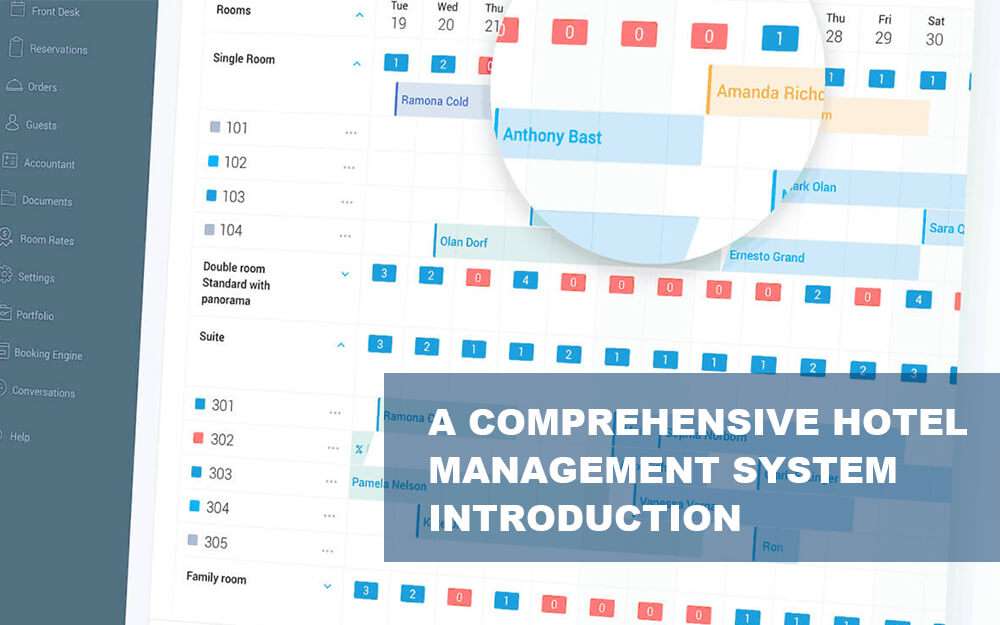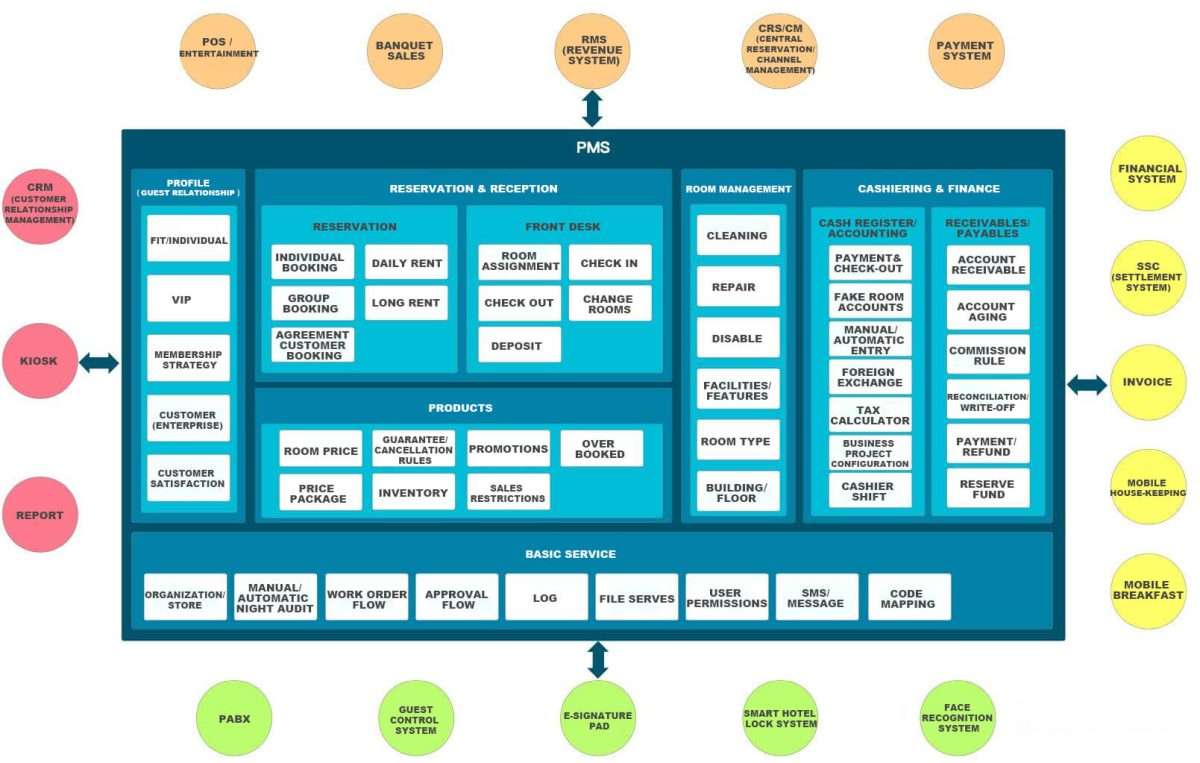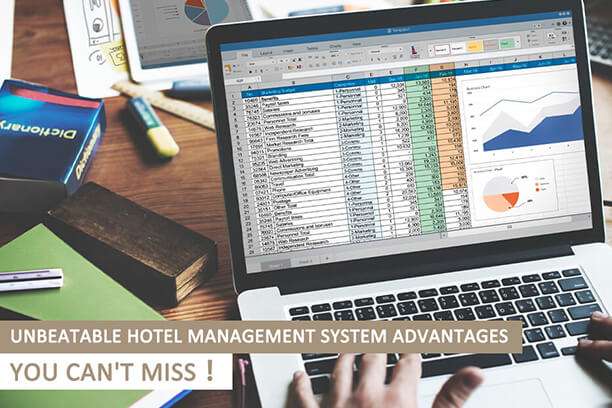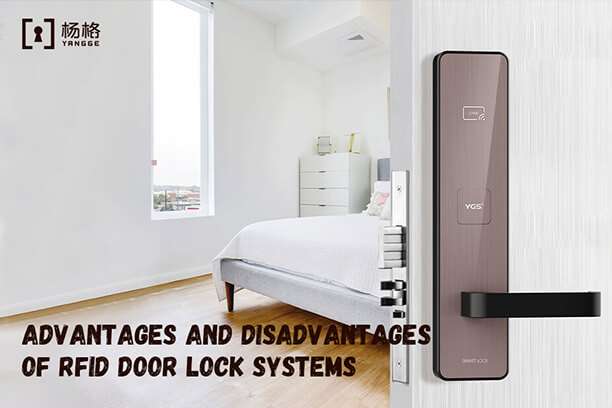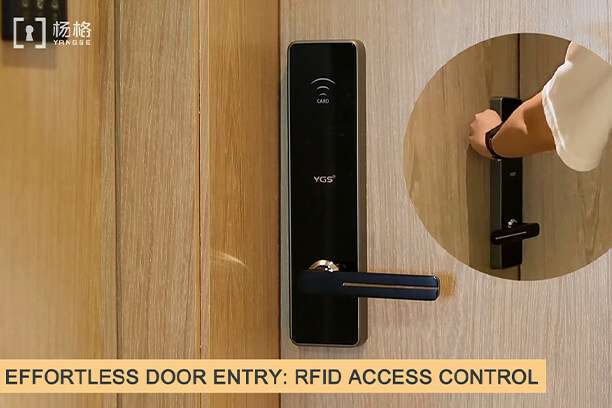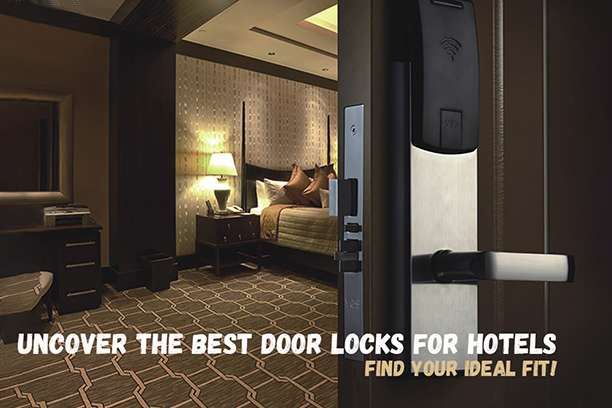In this digital age, hotels not only need to provide high-quality services and execute them efficiently, but also refine their customer base and deepen their marketing capabilities to grow continuously. This means that traditional client/server (C/S) architecture-based hotel systems have proven to be inadequate and unable to keep up with the rapidly changing market pace.
Modern hotels require more advanced and comprehensive technological means to achieve efficient management and meet customer demands. The importance of hotel management systems lies here.
Here, we will introduce a comprehensive hotel management system introduction to help hotel owners and related professionals gain a deeper understanding, choose wisely, and fully leverage hotel management systems to achieve maximum business benefits.
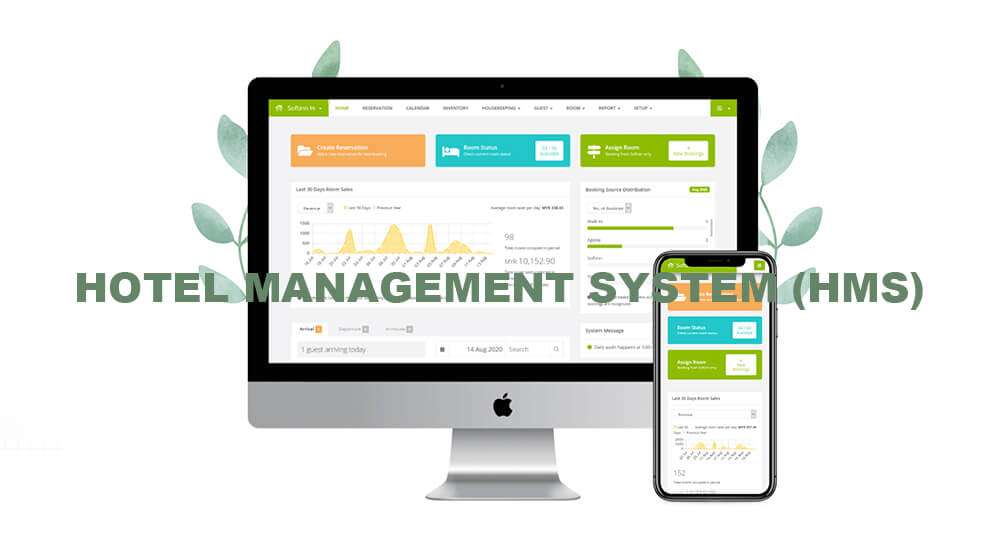
Hotel Management System (HMS) is a centralized control system specially designed for the hotel industry. It is mainly used to assist hotels in efficiently managing daily operations and services.
By integrating software and hardware, the system allows hotel business planning, decision-making, organization, scheduling, execution, and control. Its management scope covers the entire life cycle of hotel operations, including but not limited to hotel reservations, room allocation, bill settlement, inventory management, employee management, and various report generation.
Common reports such as arrival reports, guest information reports, employee working reports, hotel revenue reports, door lock unlocking reports, and hotel channel analysis reports.
This system aims to increase operational efficiency, optimize service quality, and improve the customer experience at the hotel.
The main functions of the hotel management system include:
- Room reservation and allocation management: Provide a powerful system allowing customers to book online. And using intelligent algorithms for room allocation, to ensure optimal use of hotel room resources and increase room occupancy rates.
- Comprehensive personnel management: Store enterprise employee information through the database, and achieve centralized storage and unified management of these data to ensure efficient use of hotel personnel resources.
- Improve work efficiency: Provide complete work plan arrangements and personnel allocation systems. Enable staff to complete various hotel management tasks more reasonably and efficiently.
- Cost accounting: Develop detailed expense budgets so that companies can better control expenses and reduce costs. Through the support of accounting software, hotels can carry out effective cost management, ensure the rational use of resources, and maximize profitability.
- Data analysis and report generation: Collect and analyze various types of data, and generate detailed reports. Providing decision-marking support for hotel management. Through data-driven management, the system helps hotels better understand market demand and customer preferences and formulate precise marketing strategies.
The comprehensive design and functional architecture of the hotel management system make it an indispensable management tool for the hospitality industry. Assisting hotels in adapting to the intensely competitive market environment and the ever-changing industry with comprehensive and refined management methods.
Key Components of Modern Hotel Management Systems
1. Hotel Property Management System (PMS)
Responsible for daily hotel operations, including booking requests, front desk operations, accounting management, customer information, etc.
Serving as the central hub for hotel operations, the Property Management System (PMS) goes beyond front desk customer service. It covers various administrative tasks, including basic reservation functions, room management, housekeeping management, pricing strategy formulation, financial analysis, and more.
Common PMS software includes Opera Cloud PMS, Amadeus PMS, Micros-Fidelio, etc. Besides PMS, hotels also rely on the integration of multiple systems to achieve comprehensive management and service. These systems collaborate to help hotels provide excellent customer service while simplifying management processes.
Overall, the PMS plays an indispensable role in modern hotel management. It provides strong support for the hospitality industry to better meet customer needs, improve hotel service quality, and maintain competitiveness.
2. Central Reservation System (CRS)
Centralizes all reservation information from different channels, providing hotels with convenient and unified management tools.
The Central Reservation System (CRS) acts as the manager for a hotel’s global reservation channels. Its primary responsibility is to integrate various online reservation platforms, ensuring consistency in hotel information across different booking channels, including room availability, prices, promotional information, etc.
By updating these key pieces of information in real-time and publishing them to various channels (such as online travel websites, online travel agents, corporate clients, and individual travelers) CRS provides an efficient reservation management solution for hotels.
In summary, CRS is crucial for efficient operation and customer interaction in the hotel business. It not only expands the hotel’s market coverage but also provides powerful tools for adapting to changing market environments.
3. Online Booking Engine
Allows guests to choose room types, view prices, make online payments, and ensures synchronization with CRS and PMS data.
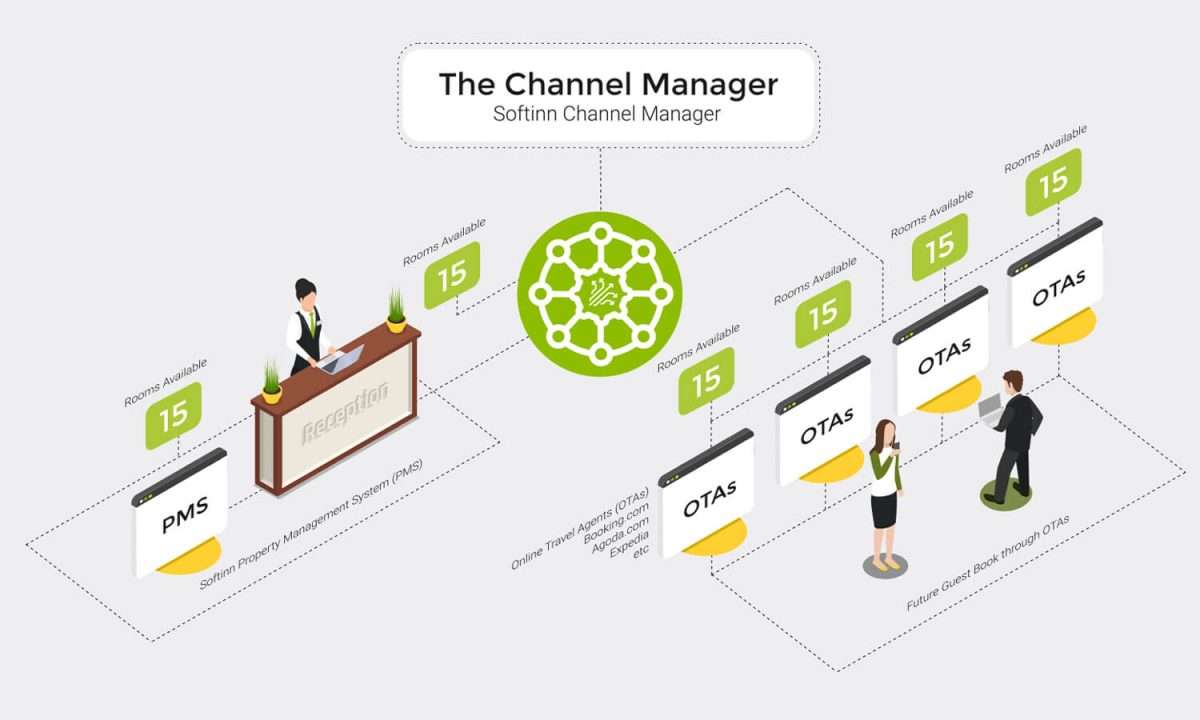
The online booking engine is specifically designed for real-time online booking by customers. It provides guests with a user-friendly interface for convenient room selection, real-time price viewing, and secure online payment services.
All this booking information is automatically integrated into the Central Reservation System for effective unified management.
In general, an online channel manager not only enhances the customer experience on the website but also encourages guests to prefer direct booking channels, increasing the hotel’s profits.
The importance of this system lies in improving the overall booking process efficiency, providing convenience and revenue for hotel business development and management.
4. Smart Room Control System
Allows guests to control various facilities in the room, such as lights, temperature, curtains, etc., through smart devices, enhancing the customer experience.
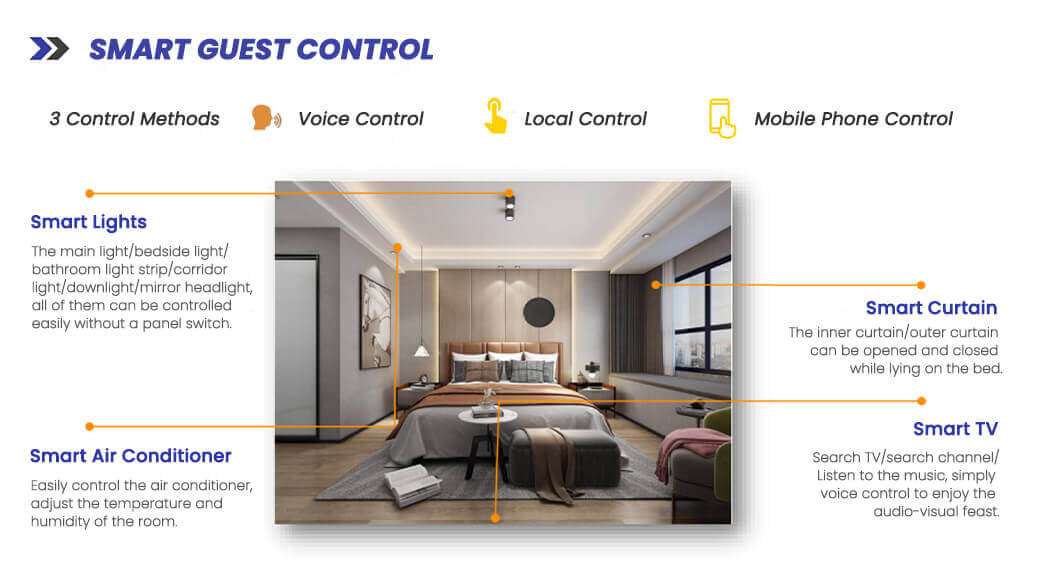
The smart room control system offers guests a novel hotel check-in experience. They can use their mobile devices (phones, tablets, etc.) to remotely control various room facilities, from adjusting lights to controlling temperature and curtains. This technology improves customer comfort in the hotel and enhances the hotel’s high-tech image.
For modern smart hotels, the smart room control system has become an indispensable part. Its application enables hotels to provide contactless services and offer a more personalized accommodation experience, further increasing customer satisfaction.
5. Hotel Smart Door Lock System
Provides secure door locks and access control, typically used in conjunction with smart cards or mobile applications.
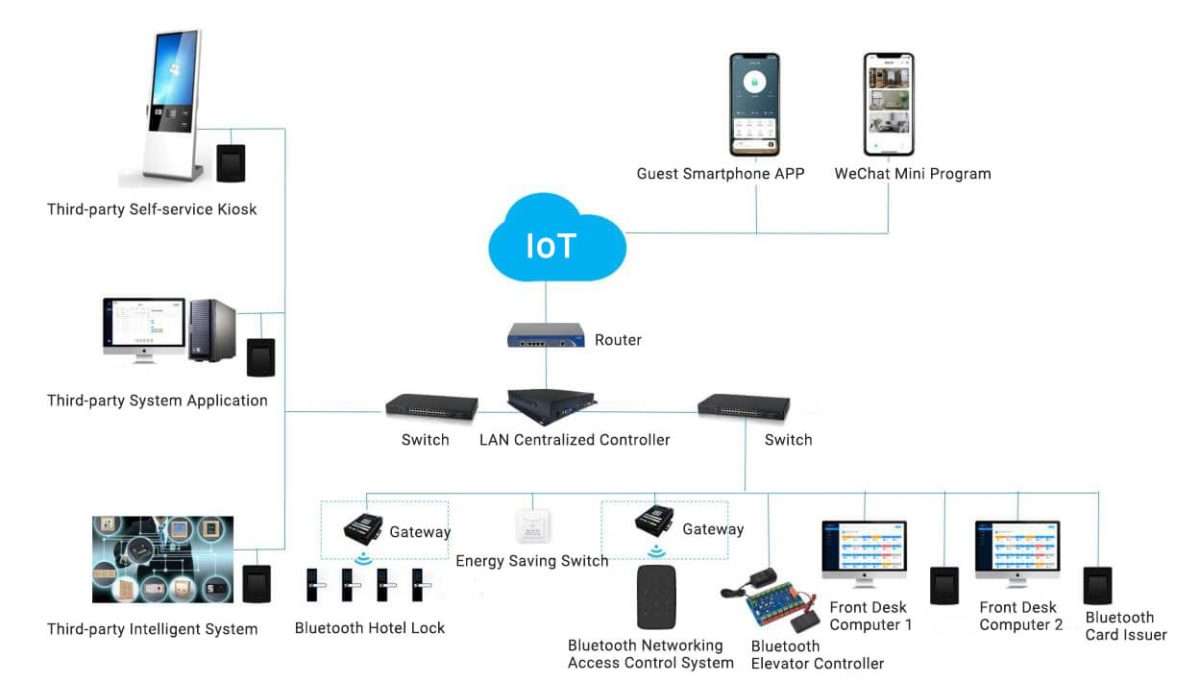
The hotel door lock system is a centralized hotel management software specially designed for managing hotel door locks. Mainly through the effective card information to control the operation of the door lock. Cards are typically used in conjunction with card issuers to transmit pre-set information to their lock.
Cards are created to meet different needs, such as using guest cards for check-in, installation cards during lock installation, or time cards for lock time synchronization.
The system also provides clear room status displays to help hotel staff avoid mistakes such as double-check-in or wrong room assignments. The system aims to simplify hotel management processes and improve the customer experience.
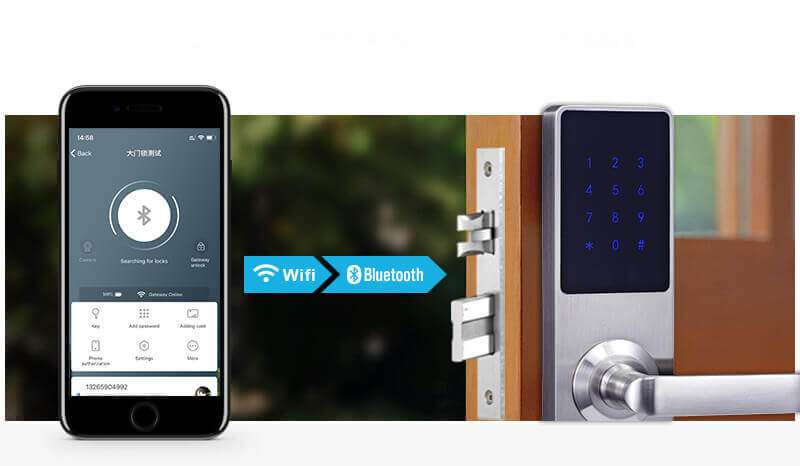
Additionally, the Bluetooth hotel door lock system implements contactless check-in hotel, keyless entry, and self-check-in. Guests can complete the entire check-in process online, get an electronic key, and enter the hotel and rooms without queuing at the front desk. This accelerates the check-in process, leaving a profound and positive impression on guests.
Hotel business owners can also monitor each hotel door lock online for fast, safe, and convenient hotel management. The convenience of the system is reflected in many aspects such as door lock power synchronization, door lock time synchronization, unlocking record synchronization, remote unlocking and locking, and one-click check-out.
As a leading hotel door lock supplier in China, we focus on providing professional hotel smart door lock solutions, dedicated to meeting the growing demands of the hotel industry for secure access control and efficient management.
Our hotel door lock system integrates advanced smart card and Bluetooth systems, providing customers with secure, convenient, and efficient hotel door lock and hotel access control solutions.
If you have any further questions or need detailed information about our hotel smart lock system, please feel free to contact us. We will do our best to provide professional support and solutions to meet your needs.
6. Customer Relationship Management System (CRM)
Manages interactions with customers, helping hotels establish and maintain customer relationships to improve customer loyalty.
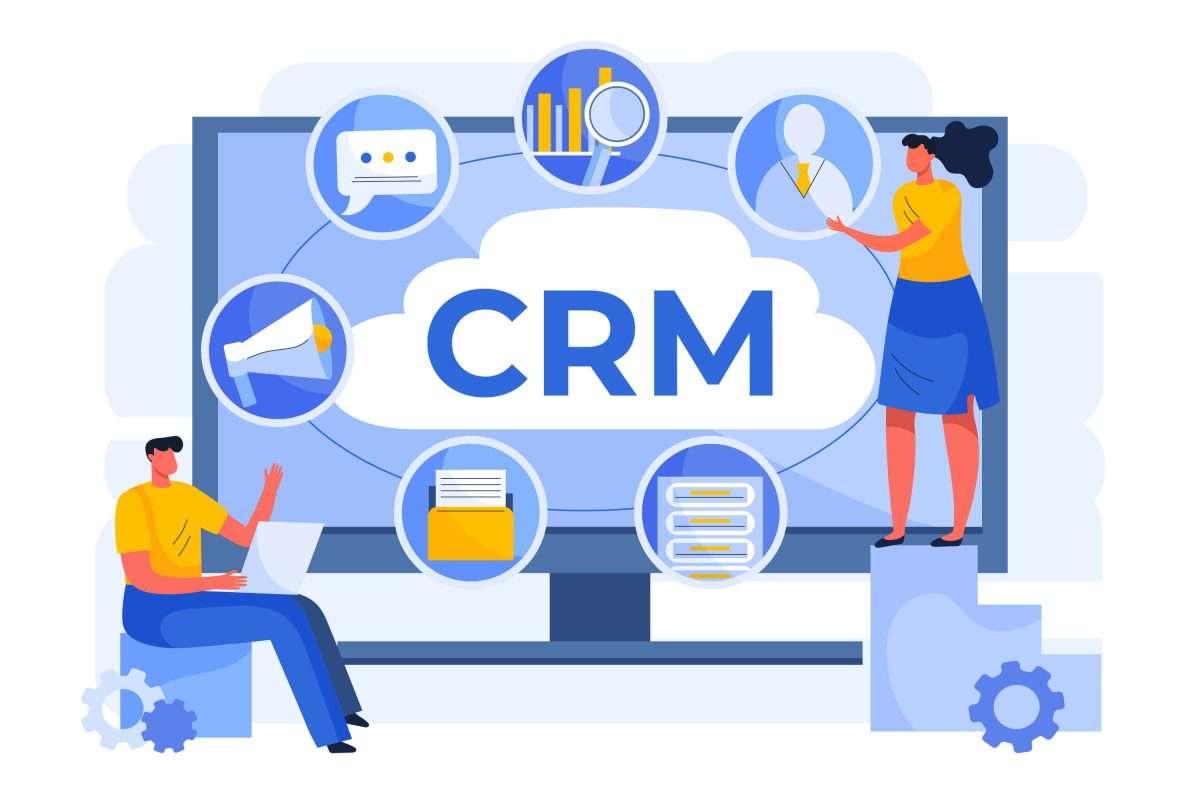
The Customer Relationship Management System (CRM) is designed to strengthen interactions with customers and increase loyal guests for hotels. In a hotel management system, CRM may include key functionalities such as:
- Customer Information Management: Comprehensive guide for recording guest profiling, contact details, and preferences, laying the foundation for personalized services.
- Reservation Management: Tracking customer reservation information, including check-in and check-out dates, room types, etc., to ensure effective room utilization.
- Communication and Interaction: Communicating with customers through multiple channels, such as email, SMS, etc., to send reservation confirmations, greetings, etc., enhancing the connection between customers and the hotel.
- Complaint Handling: Recording and promptly addressing customer complaints, taking appropriate measures to resolve issues, maintaining customer satisfaction, and brand reputation.
With a customer relationship management system, hotels can better understand their customers, provide more accurate services, and encourage them to choose and remain loyal to the hotel brand.
Thus building closer customer relationships and attracting more potential guests while maintaining a competitive advantage in the fiercely competitive hospitality industry.
7. Inventory Management System
Ensures effective hotel management of hotel resources, including rooms, restaurant seats, meeting rooms, etc., through inventory control.

The hotel inventory management system is a crucial tool for monitoring and managing various resources and inventory in the hotel. Its main functions include room management, pricing strategy formulation, inventory tracking, report generation, and data analytics features.
Through this system, hotels can achieve optimal allocation of resources, improve business efficiency, and reduce the potential risks of overbooking or seating. This ensures that hotels can better respond to changes in a fiercely competitive market, ensuring smooth overall operations.
8. Financial Management System
Handles thefinancial transactions of the hotel, including accounting, income accounting, cost management, etc.
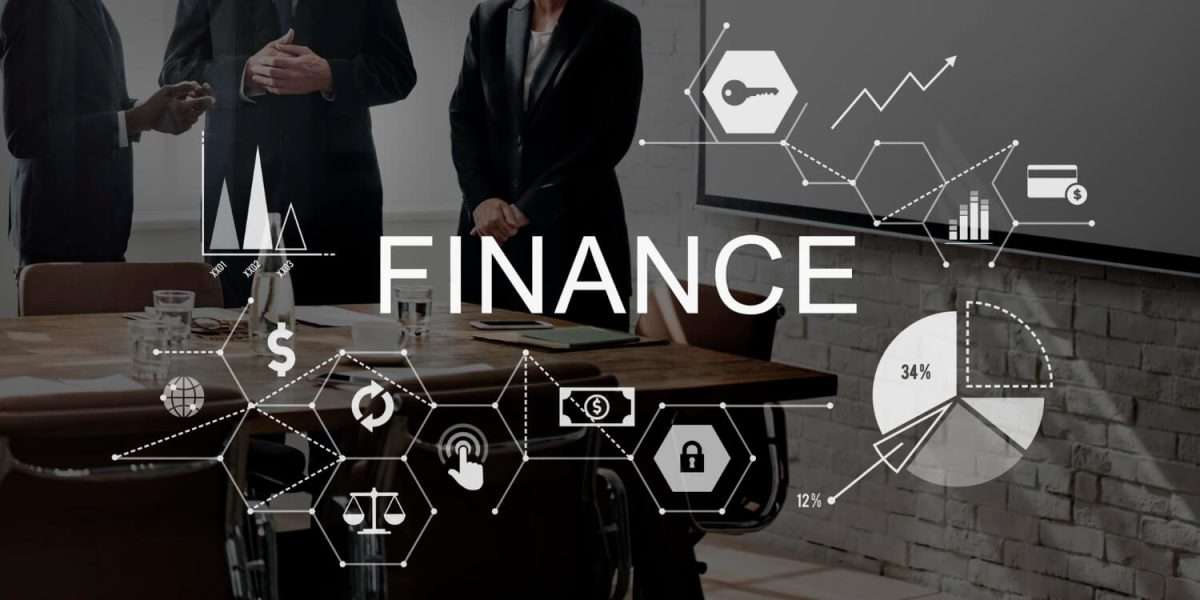
The hotel financial management system is a software system designed specifically for managing hotel financial aspects. It aims to simplify hotel financial workflows, enhance work efficiency, and better supervise and control various financial activities in the hotel.
The system automatically performs functions such as accounting records, audit tracking, daily financial analysis, and financial reporting, comprehensively supporting various aspects of hotel financial management.
By helping hotel business owners effectively manage funds, approve expense reimbursements, handle income and expenses, etc., the system provides a more efficient hotel revenue management system solution for hotels.
Its primary purpose is to ensure the financial stability and sustainability of the hotel, providing reliable financial support for hotel business, thereby promoting more effective operation and management.
9. Hotel Staff Management System
Manages employee information, scheduling, training, etc., to ensure efficient operations and excellent service.
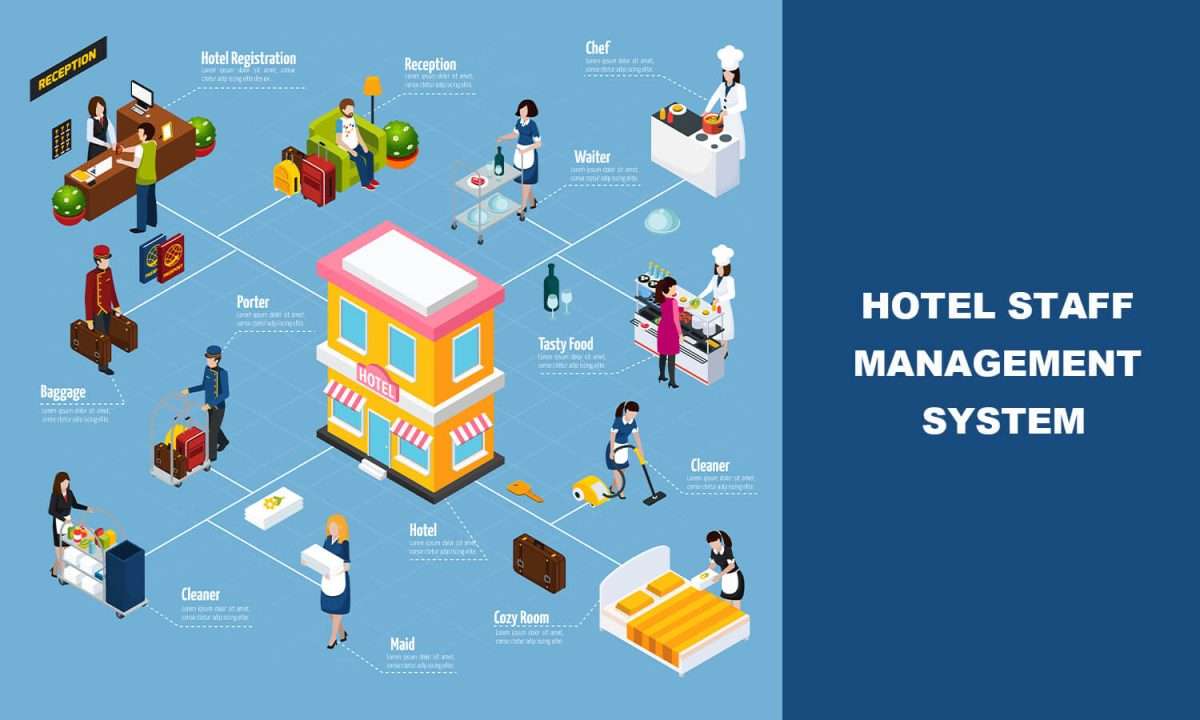
The hotel staff management software is designed to improve employee operational efficiency and service levels. Besides basic human resources management, the system also refers to intelligent scheduling and training plan implementation.
Through these functions, hotel managers can ensure that enough qualified employees are working during different periods and business demands, achieving efficient operations. The purpose of the system is to drive the hotel industry to improve service quality and customer satisfaction.
Through scientific and precise performance evaluations, managers can identify and reward outstanding employees, while providing targeted support and training to address deficiencies. This system not only promotes the personal development of employees but also contributes to the overall excellent performance of hotel operations.
10. Safety and Monitoring System
Ensures hotel safety, including surveillance cameras, intrusion detection systems, emergency response to accidents, etc.
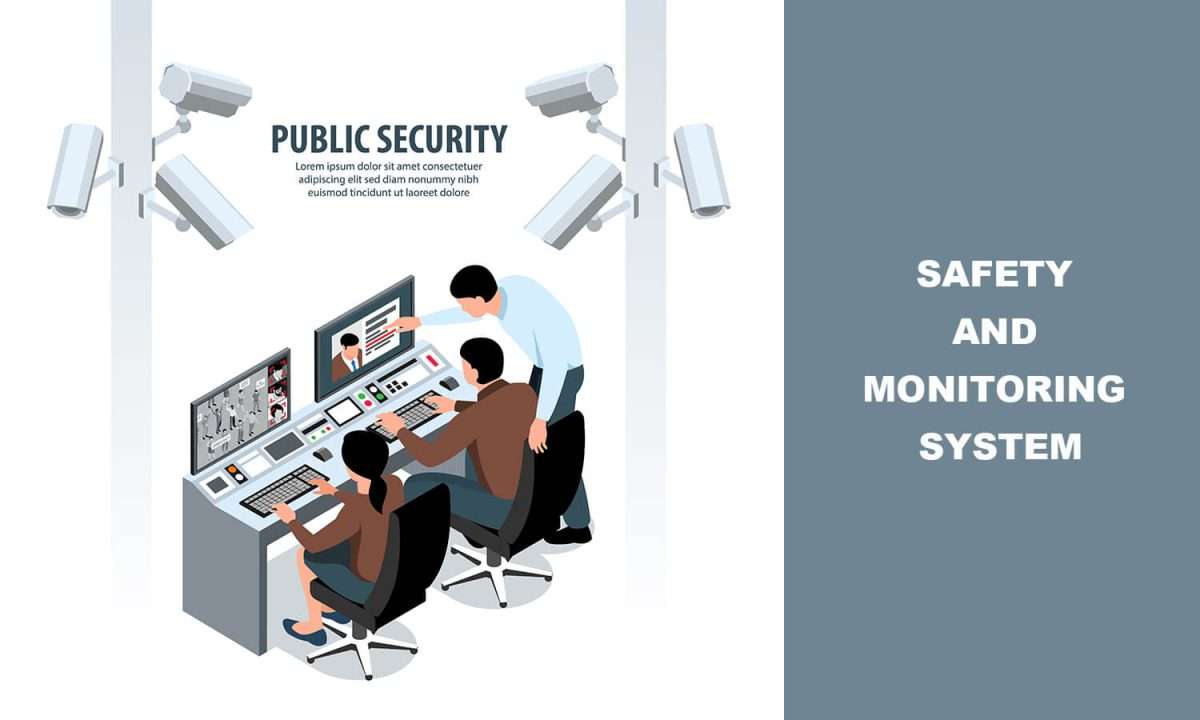
The hotel safety and monitoring systems are essential components of a hotel. The system uses multi-layered security measures to ensure the overall safety of the hotel. Surveillance cameras, intrusion detection systems, and emergency accident response elements play important roles in the system.
Surveillance Cameras:
- Installed in key areas like the hotel reception, lobby, parking lot, swimming pool, hotel elevator, and guest passages for real-time monitoring.
- Prevents security threats and provides crucial post-event evidence for dispute resolution.
Intrusion Detection System:
- Uses intelligent sensors and alarms to promptly detect unauthorized entry or suspicious activities.
- Enables the hotel to take necessary measures before potential risks become threats, ensuring guest and staff safety.
Emergency Accident Response System:
- Linked with monitoring, it detects real-time abnormal situations and triggers emergency measures.
- Initiates actions like automatic alarms, contacting relevant departments, or evacuation, reducing potential danger impact quickly.
This comprehensive system not only safeguards the hotel but also provides guests with a secure living environment. It enhances emergency response, improving overall management and ensuring the hotel’s sustainable operation.
In conclusion, these components work together to make the hotel management system a comprehensive tool. This helps improve operational efficiency and guest service levels, ensuring the hotel’s financial and safety sustainability.
The collaboration of each part enables hotels to better adapt to the demands of the modern business environment.
Benefits of Hotel Management System Introduction
Implementing a comprehensive ‘hotel management system introduction’ yields numerous benefits, from cost reduction and efficiency improvement to heightened customer satisfaction. Explore how these advantages contribute to the sustainable growth of hotels in the modern business environment.
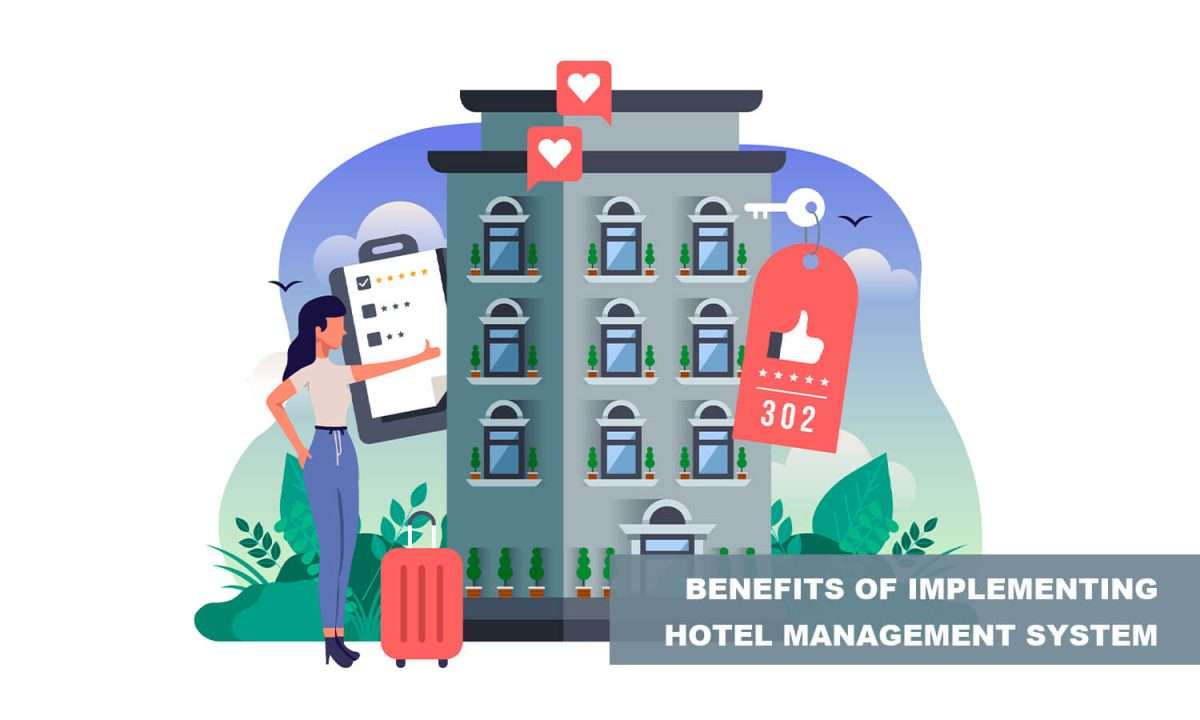
1. Cost Reduction and Efficiency Improvement
The hotel management system significantly reduces operational costs by automating various hotel departments’ management. Simultaneously, automating tedious hotel management tasks helps save management time and enhances overall efficiency.
Automating some repetitive tasks covers the entire process from reservation to check-out, including room allocation, booking, check-in, check-out, etc., improving operational efficiency.
2. Enhanced Customer Satisfaction
The hotel management system facilitates convenient online booking, payment, and refund functions, offering customers a more flexible and personalized experience.
Through detailed data analysis, hotels can better understand customer needs and preferences. Thus implementing personalized services to increase customer satisfaction further and strengthen customer loyalty.
3. Increased Hotel Revenue
The hotel management system provides real-time monitoring of hotel operations, financial status, and customer information, offering accurate data support to the hospitality management. Therefore, hotels can optimize operational decisions, adjust prices reasonably, and maximize revenue.
4. Resource Utilization Optimization
The inventory management system helps hotels better understand resource utilization, such as room and restaurant occupancy rates. Targeted resource management helps avoid waste and improve resource utilization efficiency, thereby reducing costs.
5. Strengthened Security and Monitoring
The security and monitoring modules of the hotel management system provide comprehensive security, including room door lock control systems and real-time surveillance cameras. Real-time monitoring of all public areas ensures the safety of guests and hotel property.
All records are automatically backed up in the system, providing robust security support and improving overall security levels.
6. Simplified Booking Process
The online hotel booking engine simplifies the reservation process, providing guests with a faster and more convenient booking experience. Guests can choose room types, view prices, and complete payments online, increasing the booking conversion rate.
Additionally, the system saves front desk staff time, allowing them to focus more on providing excellent customer service. Further enhance customer experience.
People Also Want To Ask:
A. What is the Relationship Between PMS and HMS?
Hotel Management System (HMS) and Property Management System (PMS) are closely related terms, and in some contexts, they can be used interchangeably. However, they may also represent different levels or functionalities within a system.

HMS is a broad term that usually covers the entire scope of hospitality management and operations. It includes key management systems such as PMS systems, hotel door lock systems, CRM systems, hotel reservation systems, and more.
HMS provides a comprehensive hotel software solution by integrating several systems to effectively manage different aspects of the hotel, thereby improving overall efficiency.
PMS is one of the core components of HMS, focusing primarily on essential hotel management functions such as reservation management, room allocation, billing features, hotel activities recommendations, and front desk management.
As the central system for both front and back-office hotel operations, PMS helps coordinate different departments. The system ensures smooth check-ins and check-outs, efficient management of room cleaning and hotel maintenance, accurate tracking of inventory, and more.
All in all, PMS plays a critical role in the overall hotel operations, providing an organized and efficient management platform.
B. What Is PMS, And How Does It Impact the Hotel Industry?
Hotel PMS (Property Management System) is a core component of hospitality management, serving as comprehensive hotel management software for effectively managing various aspects of the hotel, including rooms, revenue, and customer information.
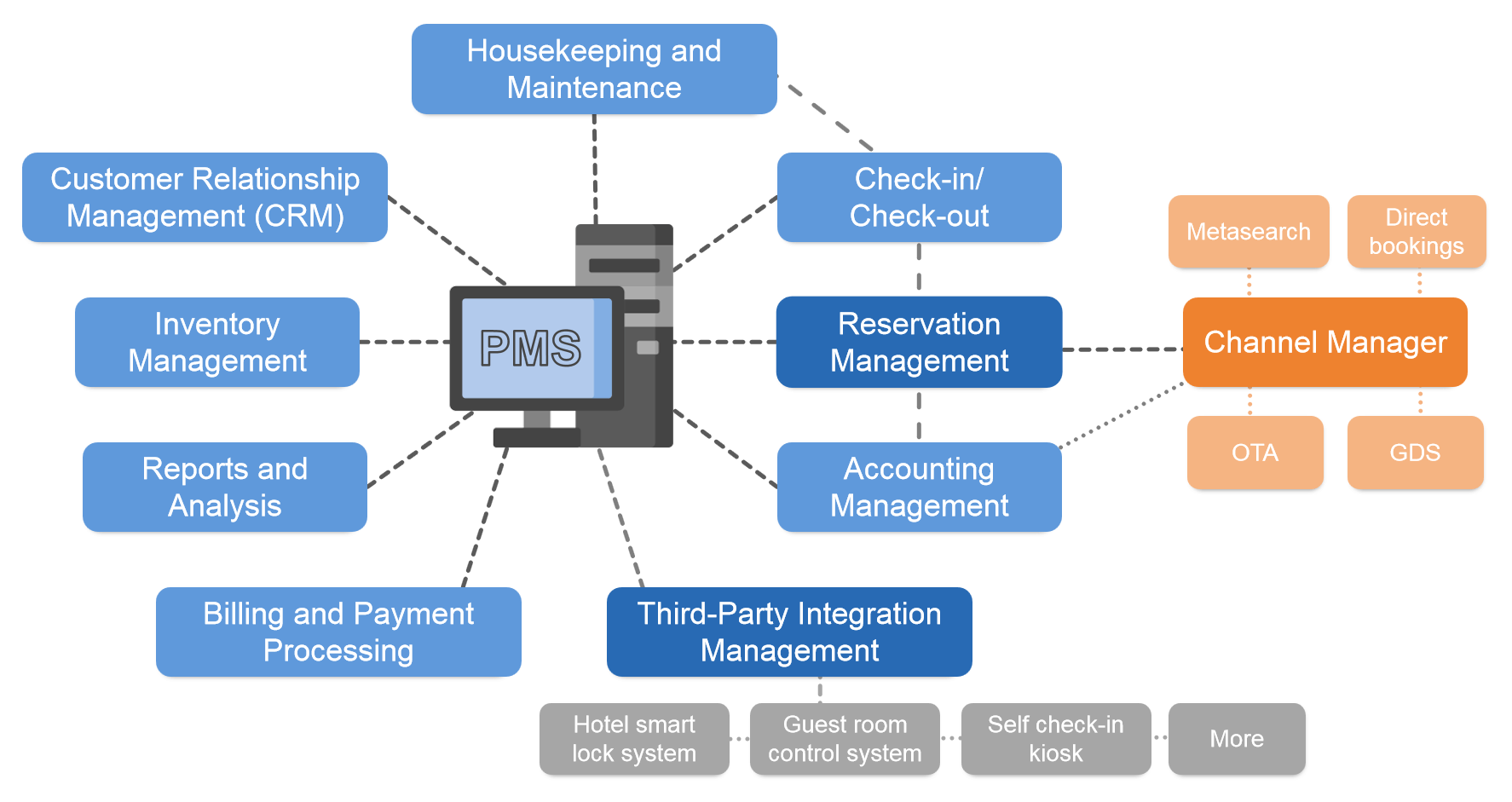
With the continuous progress of smart technology, hotel PMS has evolved. The following is a brief overview of the development history of hotel PMS systems:
1. Early Electronic Management Systems:
In the 1950s, with the emergence of computer technology, electronic management systems were introduced. Hotels began adopting these systems to manage daily operations, including reservations, billing, and room assignments. This phase significantly improved hotel management efficiency, enabling quick processing of customer demands.
2. Rise of PMS:
In the 1970s, the first-generation PMS systems emerged, capable of managing rooms, billing, reservations, and automated credit card transactions. MICROS became the first PMS system provider, bringing more convenience to hotel management.
3. Internet Connectivity of PMS Systems:
In the 1990s, hotel PMS started connecting to the Internet, allowing hotels to provide real-time information to customers, such as prices, room types, and availability. This innovation introduced cost-effective online booking services, enhancing customer convenience and increasing hotel revenue.
4. Mobile Applications:
In the latter half of the 20th century, with the widespread use of smartphones and tablets, the demand for mobile apps or browser applications increased dramatically. Through application-assisted hotel PMS systems, customers could directly perform digital room bookings, resulting in more convenient and efficient services.
5. Cloud-Based PMS Systems:
Over time, as the needs of the hotel sector became more diverse, traditional PMS systems could no longer meet these demands. Cloud-based PMS systems allow hotel managers to access more accurate data anywhere, anytime, improving hotel business agility through distributed data processing and storage.
6. Smart Hotels:
The emergence of modern smart hotels further propelled the development of hotel PMS systems. They automate not only shopping, dining, and cleaning, but also front desk operations, room management, and effective marketing activities. This trend significantly enhances the level of intelligent management in hotels.
In the evolving process, hotel PMS systems have become an indispensable part of modern hotels. Keeping up with the times, updating systems regularly, and exploring new technological applications can help hotels succeed in the market.
C. What Types of PMS Systems Are There?
There are mainly two types of PMS systems: Traditional PMS systems and Cloud-Based PMS systems.
Traditional PMS Systems:
Traditional PMS systems are traditional hotel management service systems typically installed on the hotel’s local server or computer. Their main functions include managing and processing hotel business operations such as check-ins, room status management, and order processing.
These systems usually operate within the hotel’s internal network, limited by local hardware performance and storage capacity. Although traditional PMS systems provide basic business support, their limitations make it challenging to extend and upgrade functionalities.
This restricts the flexibility of hotels in responding to changing business needs and market trends.
Cloud-Based PMS Systems:
Cloud-based PMS systems are advanced hotel management service systems based on cloud computing architecture, designed to efficiently manage and process hotel information. Cloud PMS systems eliminate tedious tasks like local code editing and technical development for hotel managers by deploying servers, data, and functionalities in the cloud.
Through the Internet, hotel managers can easily register and use the system, enabling efficient remote management. Using the elastic nature of cloud computing, the system can adapt to meet hotel business needs flexibly.
All in all, Cloud PMS systems are not only an evolution of traditional PMS systems but also serve as a powerful tool for hotel management in the Internet age.
Below is a more specific comparison between the two:
| Features | Traditional PMS | Cloud-Based PMS |
|---|---|---|
| Technical Architecture | Local server-based, integrated software and hardware. | App with cloud connectivity, server and data management through cloud computing. |
| Feature Updates | Rarely provides version updates, requiring hotel managers to independently update software and backup data. | Updates and maintenance are handled by the cloud service provider, allowing flexible system updates based on customer needs. |
| Pricing | Fixed high initial investment and high maintenance costs. | Relatively lower pricing. System maintenance adopts a pay-as-you-go model. |
| Service Scope | Limited to system maintenance, lacks operational concepts, and cannot provide comprehensive business, operational, and management services. | Introduces operational concepts, ensures normal system operation, and provides comprehensive business, operational, and management services. |
| Security | Security concerns such as inadequate physical space backup and data transmission vulnerabilities. significant security gap compared to cloud-based PMS. | Provides strict physical space backup, data encryption measures, and regulatory oversight, maximizing data security. |
| Convenience | Supports only local operations, and cannot be accessed anytime, anywhere via the internet. | Supports multi-terminal operations, accessible anytime, anywhere via the internet, enhancing operational convenience and flexibility. |
| Big Data & Intelligence | Business processes are isolated, difficult for data mining. | With a cloud-based architecture, interconnected processes can be easily managed, enabling big data mining and intelligent services such as search services, data analysis, and prediction services. |
D. How to Choose Between Traditional PMS and Cloud-Based PMS?
Choosing between traditional PMS and Cloud-Based PMS depends on various factors, including business scale, budget, technical requirements, and management flexibility. Here are some considerations:
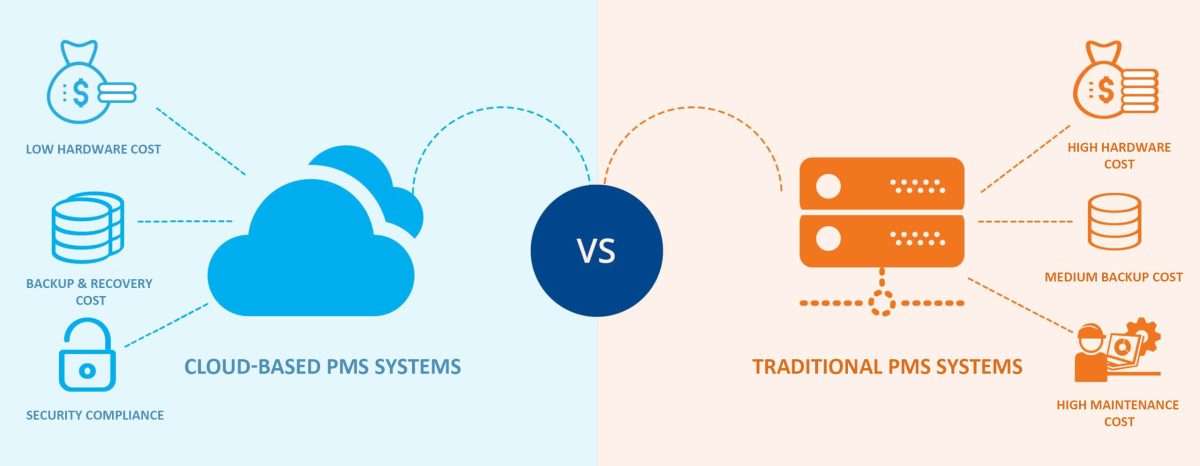
Choosing Local PMS:
- Small business scale: If you operate a small hotel or guesthouse, a traditional PMS system may be more suitable. Because It is more economically feasible to invest in it initially.
- Technical expertise: If you have a professional local technical team capable of handling system maintenance and updates, choosing a traditional PMS system might be more appropriate.
- High customization requirements: If you have high customization requirements and want to tailor system functions according to your business processes, a traditional PMS system may be easier to customize.
Choosing Cloud-Based PMS:
- Large business scale or expansion plans: If your hotel has a large scale or expansion plans, a Cloud-Based solution provides more flexible scalability to accommodate rapid business growth.
- High mobility requirements: If you need to manage the hotel anytime, anywhere via mobile phones or tablets, a Cloud-Based solution offers greater flexibility and convenience.
- Flexible pricing: Cloud solutions usually adopt a pay-as-you-go model, avoiding significant initial investments. This is advantageous for businesses with limited budgets or those wanting more flexible cost control.
- Automatic updates and maintenance: If you want to lighten the burden on the local technical team, Cloud-Based systems may be more suitable. This system provides automatic updates and maintenance services through the cloud service provider, reducing management workload.
In summary, choose based on specific business needs and existing conditions. Increasingly, businesses tend to favor cloud solutions because they typically offer greater flexibility, convenience, and cost-effectiveness.
Online Enquiry Form
Related Blog
With more than 20 years of smart lock experience, YGS could provide a set of hotel door lock management solutions for your hotel business.
Unbeatable Hotel Management System Advantages You Can’t Miss
Today’s hotel management software is no longer just a simple tool but an indispensable intelligent solution in the hotel industry. Hotel management system advantages include swift order processing, efficient business management, and increased operational intelligence…
Importance of PMS in Hotel Industry: An In-depth Study
The Property Management System (PMS) is the core of modern hotel management and a crucial channel for efficient hotel operations. Particularly for star-rated hotels, brand hotels, and large resort hotels, the PMS is fundamental in facilitating the success of hotel businesses. Here, we will focus on exploring the importance of pms in hotel…
Maximizing Efficiency: An Ultimate Guide to Hotel Management Software Features
The hotel industry is dynamic and competitive, with businesses constantly seeking ways to improve efficiency and enhance guest satisfaction. Hotel management software features have become an essential tool in achieving these objectives. From online booking and…
Advantages and Disadvantages of RFID Door Lock Systems
In today’s interconnected digital world, security systems and access control have become indispensable key elements for businesses, organizations, and residential properties. However, like any modern technology, RFID door lock systems have both cons and pros. So here we will delve into the advantages and disadvantages of RFID…
Effortless Door Entry: RFID Access Control
As technology advances and security becomes increasingly important, access control has become an integral part of modern life. Among various available methods, RFID access control stands out for its efficiency and stability. Currently, RFID access control systems are widely used in places such as hotels, apartments, …
Uncover the Best Door Locks for Hotels -Find Your Ideal Fit!
Currently, the hospitality industry is experiencing an unprecedented boom in the era of fully opened travel. As hotels face intense competition, it has become crucial to elevate guest experiences and prioritize safety measures, particularly when it comes to door locks for hotels. This article aims to provide you with an in-depth understanding…

